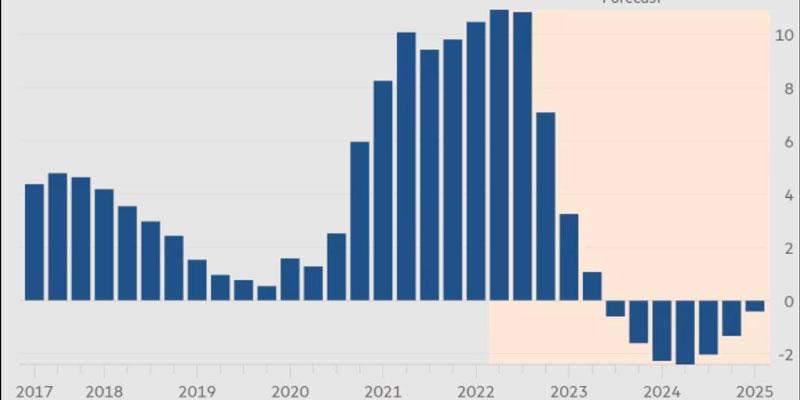In a world of instant gratification, the concept of delaying rewards may seem counterintuitive. However, when it comes to filing for Social Security benefits, the decision to delay until age 67 can be a strategic and financially prudent move. In this article, we will explore the various reasons why postponing the receipt of Social Security payments until the full retirement age of 67 can be a wise and beneficial choice.
Maximizing Your Social Security Benefits:
One of the key advantages of waiting until age 67 to file for Social Security is the potential to maximize your monthly benefits. Social Security benefits are calculated based on your highest 35 years of earnings, and the age at which you claim them plays a crucial role. By waiting until 67, individuals can ensure that they receive the full benefit amount they are entitled to, providing a more substantial financial cushion during retirement.
Understanding the Calculation of Social Security Benefits:
To better understand how delaying gratification can lead to an increase in Social Security benefits, it is essential to review how these payments are calculated. Social Security benefits are based on a formula that takes into account your highest 35 years of earnings, adjusted for inflation. This average monthly income is then plugged into a formula that calculates the primary insurance amount (PIA), which represents the amount of monthly benefits you are entitled to at full retirement age.
Every year that an individual delays claiming Social Security after reaching full retirement age, their benefit increases by 8% up to the age of 70. This increase is known as delayed retirement credits (DRCs), and it can result in a significant boost to your monthly payments.
Impact of Age on Social Security Benefit Amounts:
While individuals have the option to claim Social Security benefits as early as age 62, doing so will result in a permanent reduction in their monthly payments. For each year that an individual claims before full retirement age, their benefit amount is reduced by approximately 7-8%. This reduction can add up over time and significantly impact the overall financial security of retirees.
The Role of Delayed Retirement Credits in Boosting Benefits:
On the other hand, delaying Social Security payments until age 70 can result in an increase of up to 24% in monthly benefits. This substantial increase is due to the accrual of delayed retirement credits. By waiting until age 70, individuals can significantly boost their monthly benefit amount, providing a more robust financial cushion during their retirement years.
The Financial Implications of Early vs. Full Retirement Age Claiming:
The decision to file for Social Security benefits at the earliest eligibility age of 62 or waiting until full retirement age of 67 can have significant financial implications. While claiming early may provide immediate cash flow, it can significantly reduce the overall amount of benefits an individual will receive over their lifetime.
Enhanced Financial Security:

Delaying the receipt of Social Security benefits can contribute to a more secure financial future. As life expectancies continue to rise, retirees are faced with the challenge of funding a longer retirement period. By waiting until 67 to claim Social Security, individuals are positioning themselves for a more financially stable retirement, with higher monthly payments that can better cover living expenses, healthcare costs, and unforeseen circumstances.
Prolonging Lifespan of Retirement Savings:
In addition to the increased monthly benefits received from Social Security, delaying retirement also allows for more time to save and grow other sources of income. With fewer years of earnings, retirees may find it challenging to maintain their standard of living throughout their golden years. By delaying Social Security benefits until age 67, individuals can prolong the lifespan of their retirement savings and ensure a more comfortable and secure future.
The Tax Advantages of Delaying Claims:
Another significant advantage of delaying Social Security benefits is the potential tax savings. By waiting until 67 to file, individuals may find themselves in a lower tax bracket due to a decrease in taxable income during their working years. This can result in substantial tax savings and further enhance the financial security of retirees.
Bolstering Spousal and Survivor Benefits:
For married individuals, delaying Social Security benefits can also provide a more substantial spousal and survivor benefit. By waiting until full retirement age to claim, the surviving spouse will receive a higher monthly payment as well as an increased benefit amount should they outlive their partner.
Higher Monthly Payments for Increased Living Costs:
Another benefit of delaying Social Security until 67 is the potential to receive higher monthly payments to account for increased living costs. As inflation continues, it can take a toll on fixed-income sources like retirement savings. By waiting until full retirement age, individuals can ensure that their Social Security benefits keep up with the rising cost of living.
Opportunity for Continued Professional Engagement:
For those who enjoy their careers and are in good health, delaying Social Security benefits until 67 offers the opportunity to remain professionally engaged. Continuing to work not only allows individuals to accumulate more income but also helps them delay tapping into their retirement savings. This dual advantage can significantly bolster financial security in the later years of retirement.
Deferring Taxes on Social Security Benefits:

Delaying the receipt of Social Security benefits may also provide a tax advantage. Social Security benefits are subject to federal income tax if an individual's combined income exceeds a certain threshold. By delaying benefits until 67, retirees may find themselves in a lower tax bracket, resulting in reduced taxation on their Social Security income.
Spousal and Survivor Benefits:
For married couples, the decision to delay Social Security benefits can have a positive impact on spousal and survivor benefits. By maximizing the primary earner's benefit, the surviving spouse stands to receive a higher monthly payment should the primary earner pass away. This additional financial support can be crucial for maintaining the surviving spouse's standard of living.
Conclusion:
In a world where immediate rewards are often prioritized, delaying gratification by filing for Social Security at age 67 emerges as a strategic and financially sound decision. From maximizing monthly benefits to ensuring a more secure financial future, the advantages of postponing Social Security payments are numerous. As retirees navigate the complexities of retirement planning, the choice to delay Social Security can play a pivotal role in shaping a fulfilling and financially stable post-career life.







